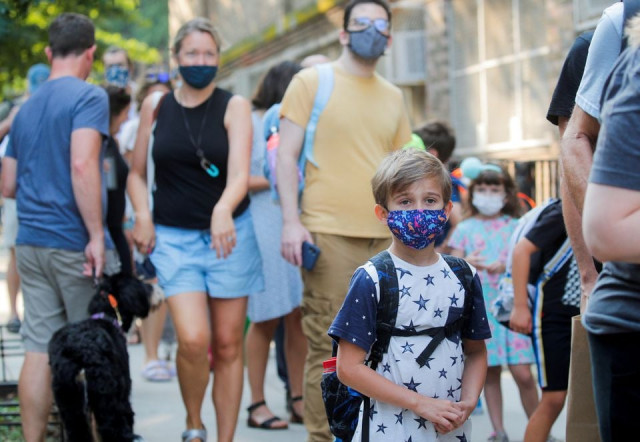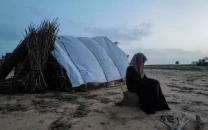US FDA authorizes first COVID-19 shot for young kids
Vaccination coverage among the age group is lower than in older groups, according to the CDC

The US Food and Drug Administration on Friday authorized the Pfizer and BioNTech SE coronavirus vaccine for children aged 5 to 11 years, making it the first COVID-19 shot for young children in the United States.
The shot will not be immediately available to the age group. The US Centers for Disease Control and Prevention still needs to advise on how the shot should be administered, which will be decided after a group of outside advisers discuss the plan on Tuesday.
Pfizer said it will begin shipping pediatric vials of the vaccine on Saturday to pharmacies, pediatricians' offices and other places where the shots may be administered.
The FDA decision is expected to make the vaccine available to 28 million American children, many of whom are back in school for in-person learning.
It comes after a panel of advisers to the regulator voted overwhelmingly to recommend the authorization on Tuesday.
Only a few other countries, including China, Cuba and the United Arab Emirates, have so far cleared COVID-19 vaccines for children in this age group and younger.
The FDA authorized a 10-microgram dose of Pfizer's vaccine in young children, lower than the 30 micrograms in the original vaccine for those age 12 and older.
Advisers on the FDA panel said a lower dose could help mitigate some of the rare side effects after paying close attention to the rate of heart inflammation, or myocarditis, that has been linked to both Pfizer and Moderna vaccines, especially in young men.
Read More: Tokyo aims to lift COVID-19 curbs on restaurants as cases fall: media
The regulator said on Friday that known and potential benefits of the Pfizer vaccine in individuals aged between 5 and 11 outweigh the risks.
For the pediatric shots, the FDA has authorized a new version of the vaccine, which uses a new buffer and allows them to be stored in refrigerators for up to 10 weeks.
In the United States, around 58% of the population is fully vaccinated, lagging other nations such as the UK and France. Many adults, who have been hesitant to get a vaccine, may be more cautious about giving the shot to their children.
"We certainly hope that as people see children getting vaccinated, and being protected and being able to participate in activities without concern, that more people will get their kids vaccinated," Acting FDA Commissioner Dr. Janet Woodcock said at a press conference.
"And as we accumulate more experience with the vaccine, more comfort with the safety will occur."
Pfizer and BioNTech said their vaccine showed 90.7% efficacy against the coronavirus in a clinical trial of children aged 5 to 11.
"This is a day so many parents, eager to protect their young children from this virus, have been waiting for," Pfizer Chief Executive Albert Bourla said in a statement
The United States started administering the vaccine to teens between ages 12 and 17 in May. Vaccination coverage among the age group is lower than in older groups, according to the CDC.
Pfizer's vaccine was the first to be authorized for emergency use in the United States in December last year for those age 16 and older and was granted full US approval in August.
Earlier this week, Moderna reported interim data showing that its vaccine generated a strong immune response in children ages 6 to 11 years. It is awaiting a US regulatory decision on the authorization for children between ages 12 and 17.



















COMMENTS
Comments are moderated and generally will be posted if they are on-topic and not abusive.
For more information, please see our Comments FAQ